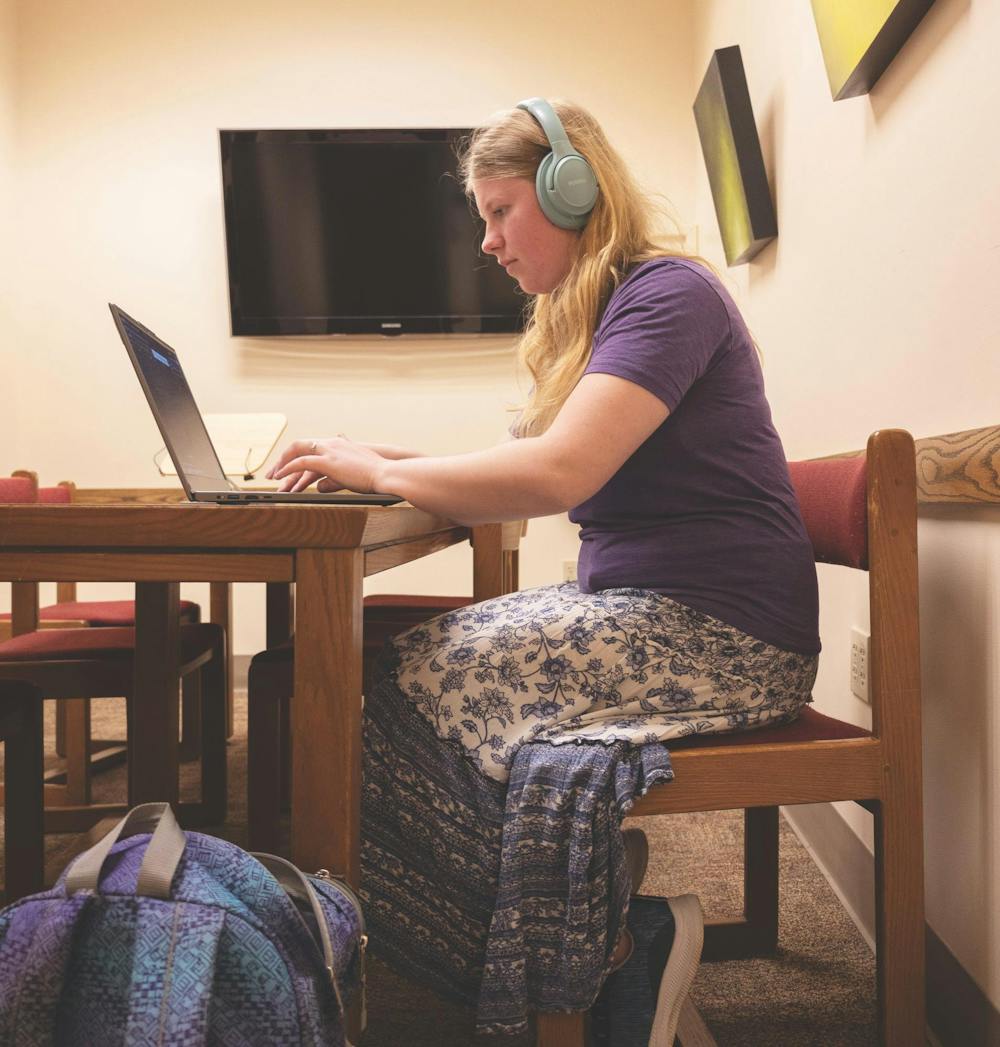When Linda Taylor first arrived at Taylor University approximately 12 years ago, she was overjoyed that there was a major on campus that taught students the same skills she had been using in her career for 30 years.
Those skills were how to publish a book.
As a contributor to this process, she has set up various opportunities for new and experienced professional writing majors to grow and showcase their skills. She encourages writing devotionals and book reviews to be submitted for publication, and participation in The Echo Newspaper.
Taylor understands that the process of publishing a book can seem mysterious.
That is why she holds a Professional Writers Conference annually in July at Taylor University. It draws writers from all over the U.S. who stay and workshop for a few days, learning the tricks of the publishing industry.
“It's been really fun to take what I know and help the next generation go on into the world and do their thing,” she said.
One student that Taylor has watched grow up into a prolific writer is professional writing senior Laurel Burgess.
In 2020, Burgess wrote a 50,000-word draft of her science fiction novel that included elements of cyberpunk and dystopia.
Four years later, she is on her fourth draft of 86,000 words and is hoping to finish it in April. She will be planning on taking the book to the Realm Makers Writers Conference in July and wants to pitch it to an agent or publisher.
Building a platform is a priority for Burgess.
Using social media to make connections is something she excels at,Taylor said. She added that Burgess has been a generous person when it comes to reading other authors' material and recognizing excellent writing that has not yet garnered a wide circle of praise.
“She's built this network of people around her who just love her feedback,” Taylor said.
Burgess said that she went to two writing retreats with connections she made over Instagram. On a fall break one year, she got on her first plane flight to Colorado and then went to Arizona to spend time with authors that were either published or still working on their writing.
Burgess got an internship this semester with Quill and Flame Publishing, a small publishing house in Ohio.
Although she did not choose to major in English, Burgess felt profoundly grateful for the advice she received in the classes from the English department at Taylor University. She said that she learned to implement the use of vivid and specific details to make her stories become more alive.
There is one aspect that she said majorly differentiated the English major from the professional writing major.
“I love the classes,” she said. “I don't think that they teach you how to pitch the work and to get it out there—but in professional writing, you can get to learn that.”
Burgess has found a special kind of community in her major. She has been in critique groups where members would read each other’s writings and give suggestions to each other. The advice given during those times has helped her do extensive work on her story and given her a strong sense of support.
Charis Negley, a senior professional writing major, drafted a historical fiction novel based around a shipwreck that happened in British Columbia in 1918. Negley was shocked that she had never heard it before and decided to write a story about it.
She said it can be scary to give a personal project to a group of people who are going to critique it. The comments that Negley received, however, ended up being constructive and helpful.
“They just gave me really great revision suggestions for the entire manuscript,” she said. “Which is really special because no one has ever read the whole thing before and could see the big picture of it.”
Negley described professional writing’s book editing and publishing class as talking through the process of getting a manuscript into a publishable format.
In the class, there were two different groups that took on the role of publishing houses. While her group worked on a manuscript from another author, the other group worked on her story.
The class focused on the various aspects of publishing, from coming up with a marketing plan and pricing information to book cover designs, copy editing and formatting, she said.
While she does not plan on becoming a full-time writer, Negley would like to eventually publish her book. She has hoped that this course would prepare the manuscript and equip her to finish it, and believes it definitely will.
“I think God just puts projects on your heart—you just got to try it out,” Negley said. “And it will be time consuming, and sometimes it won't work. That in itself is the learning process.”





